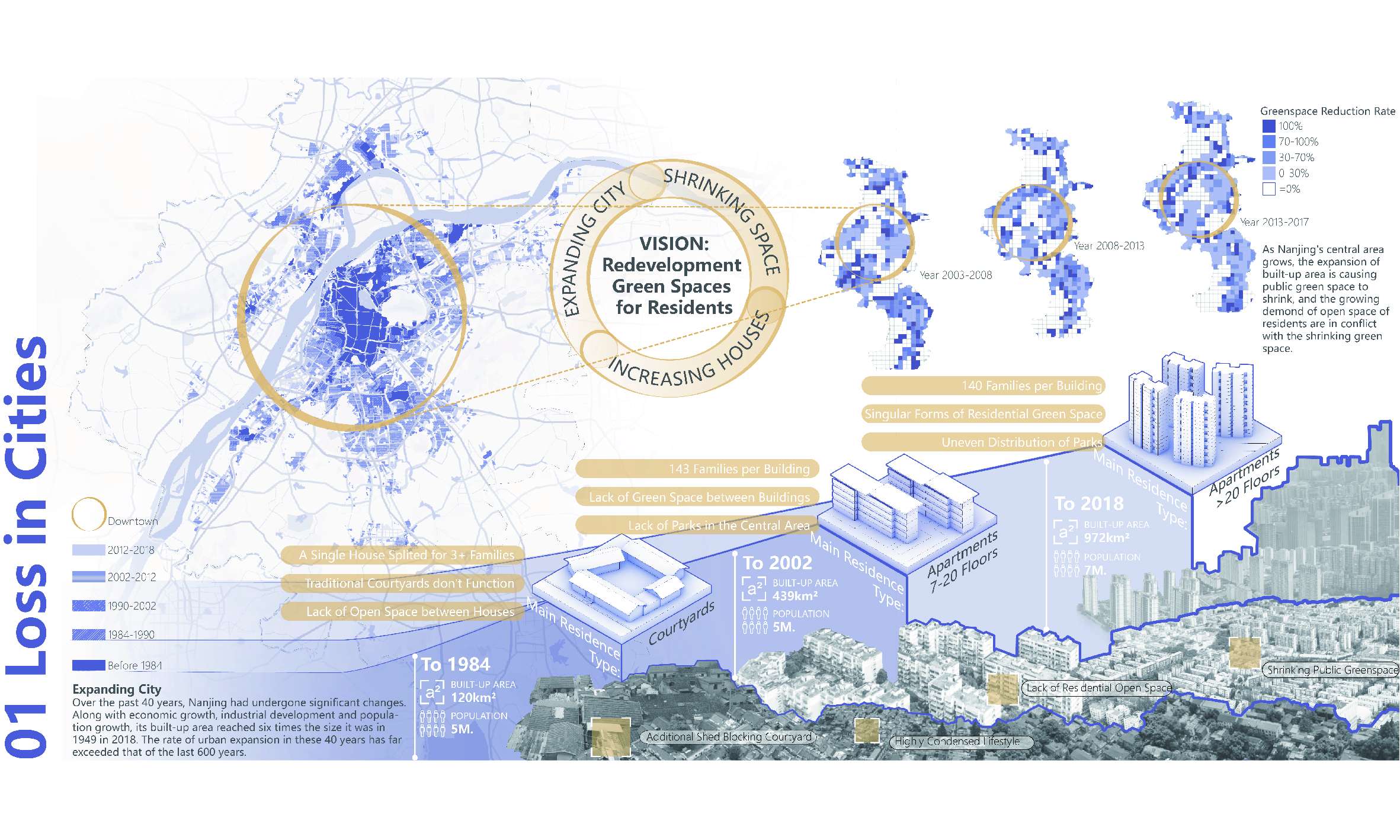
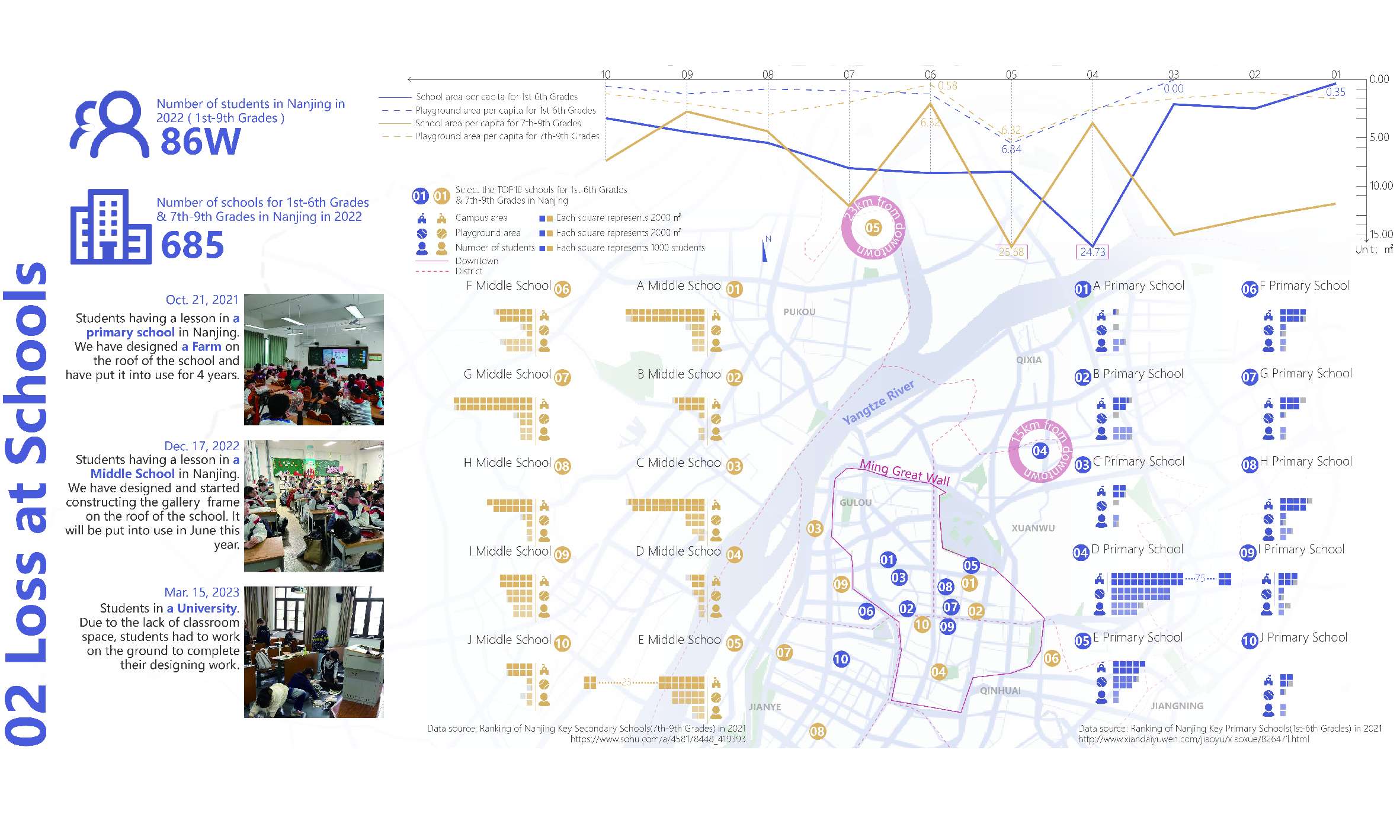
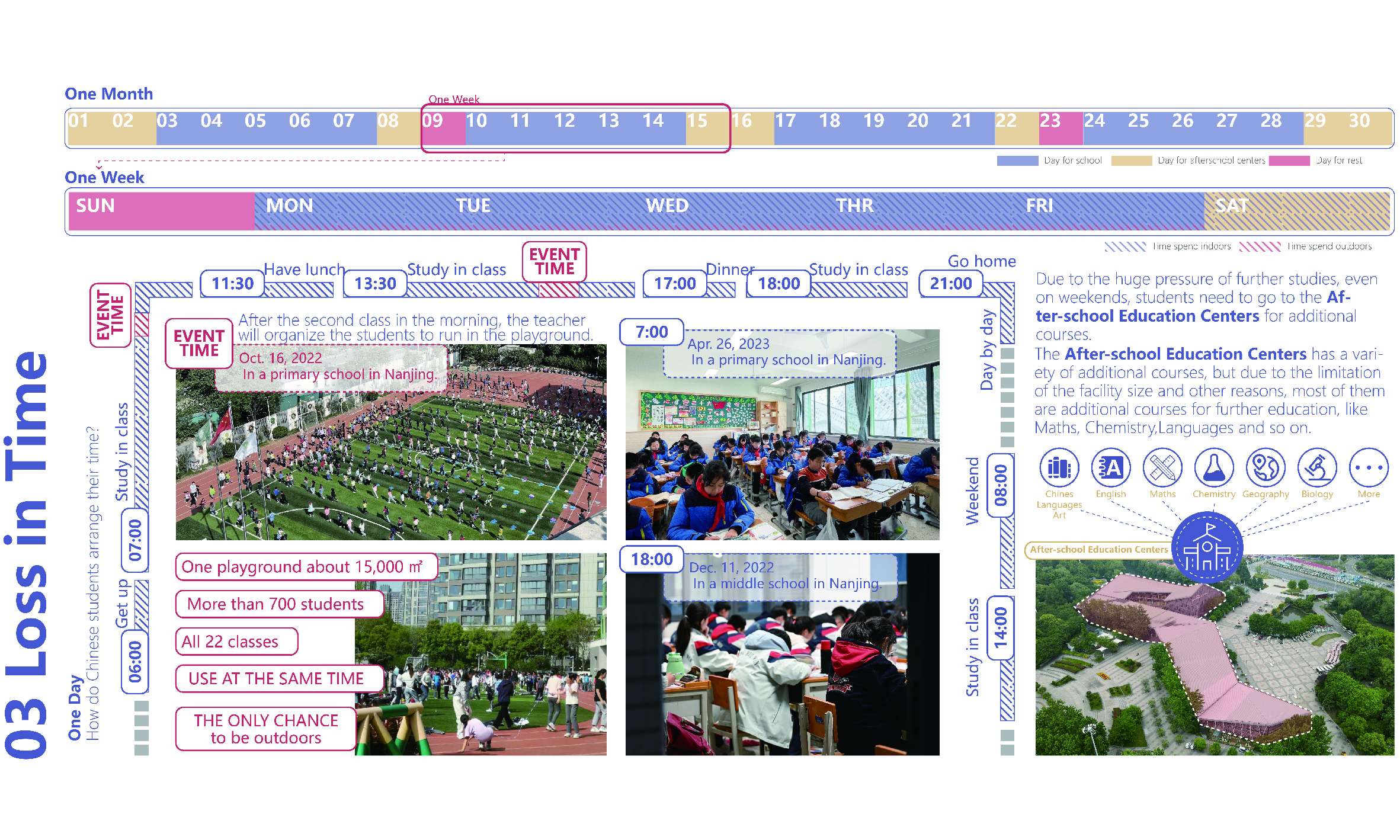
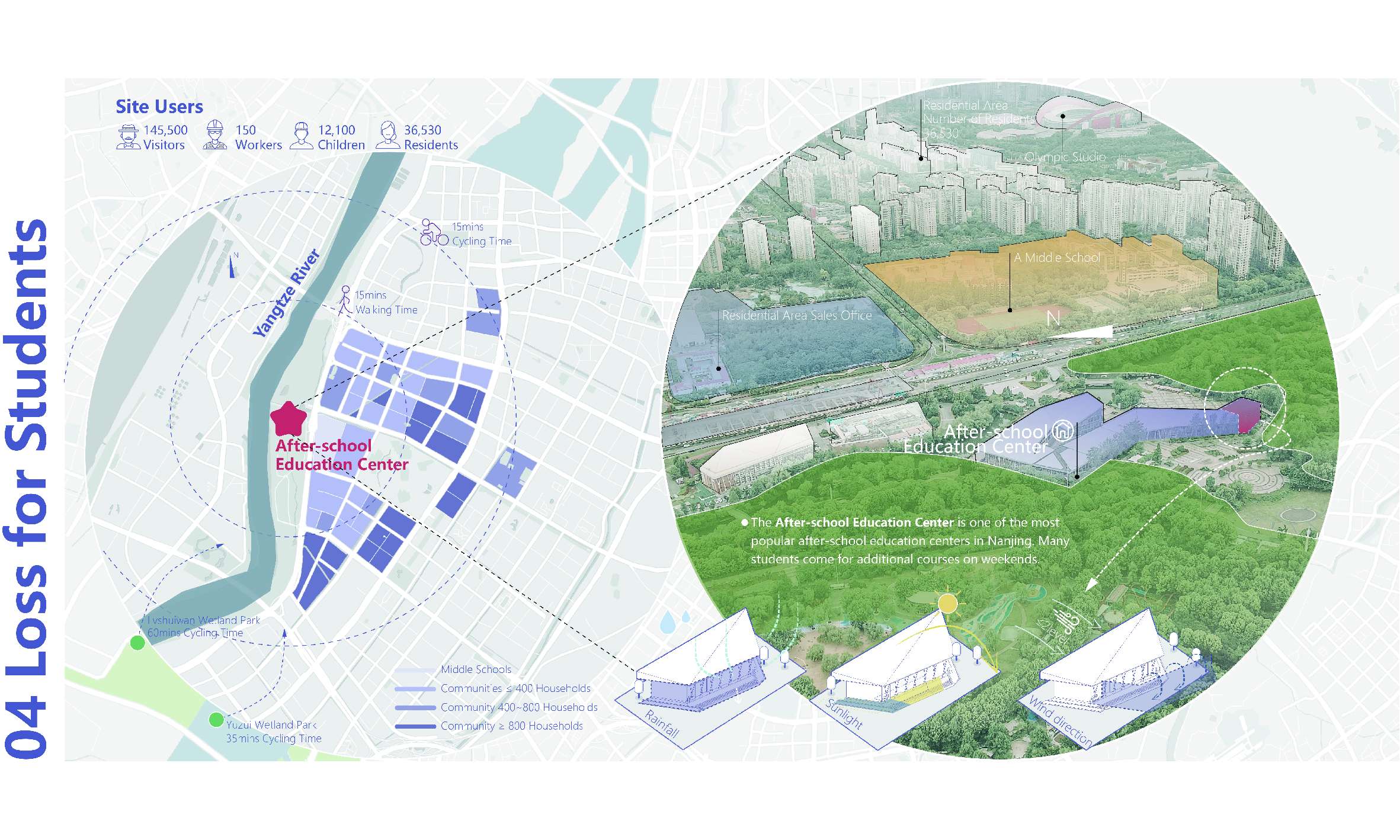
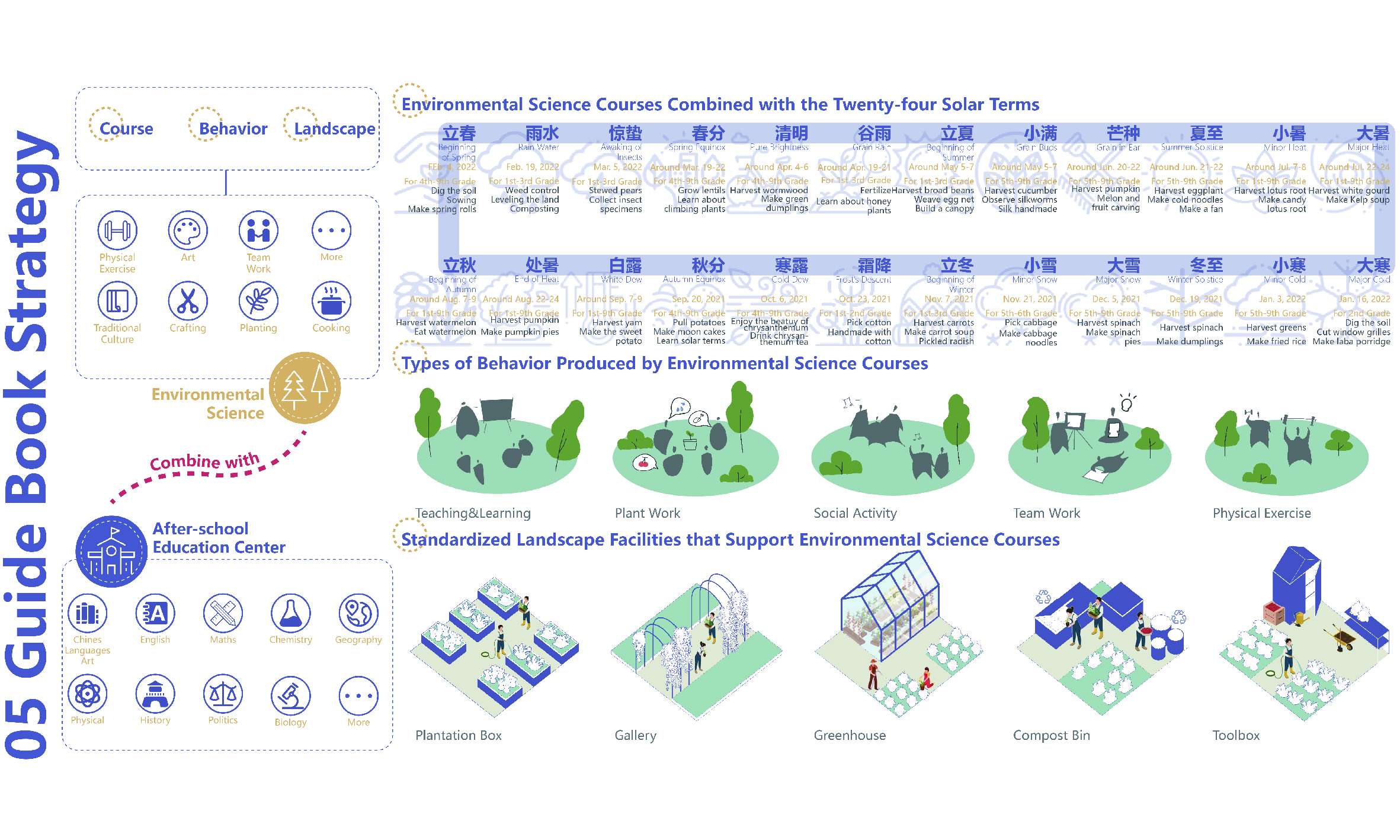
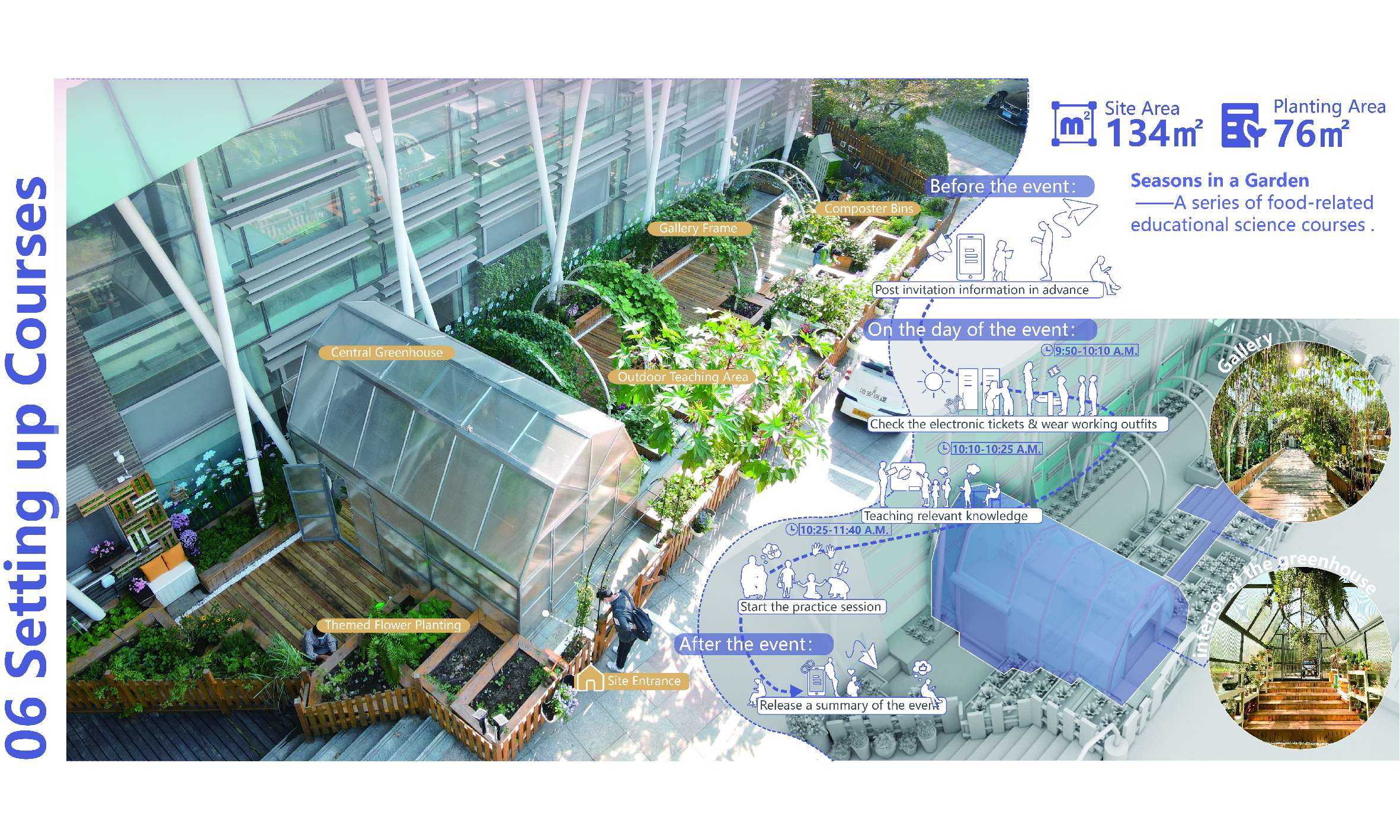
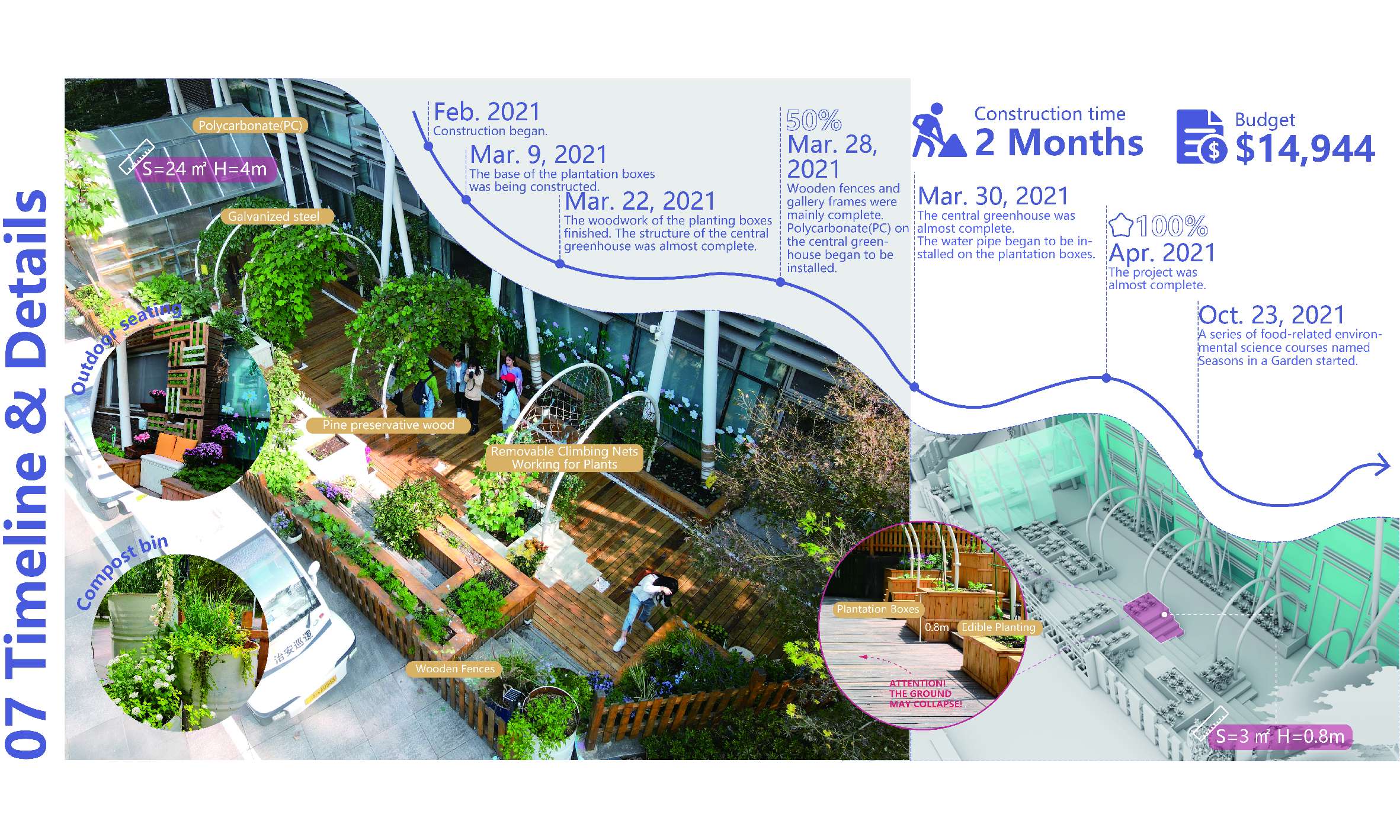
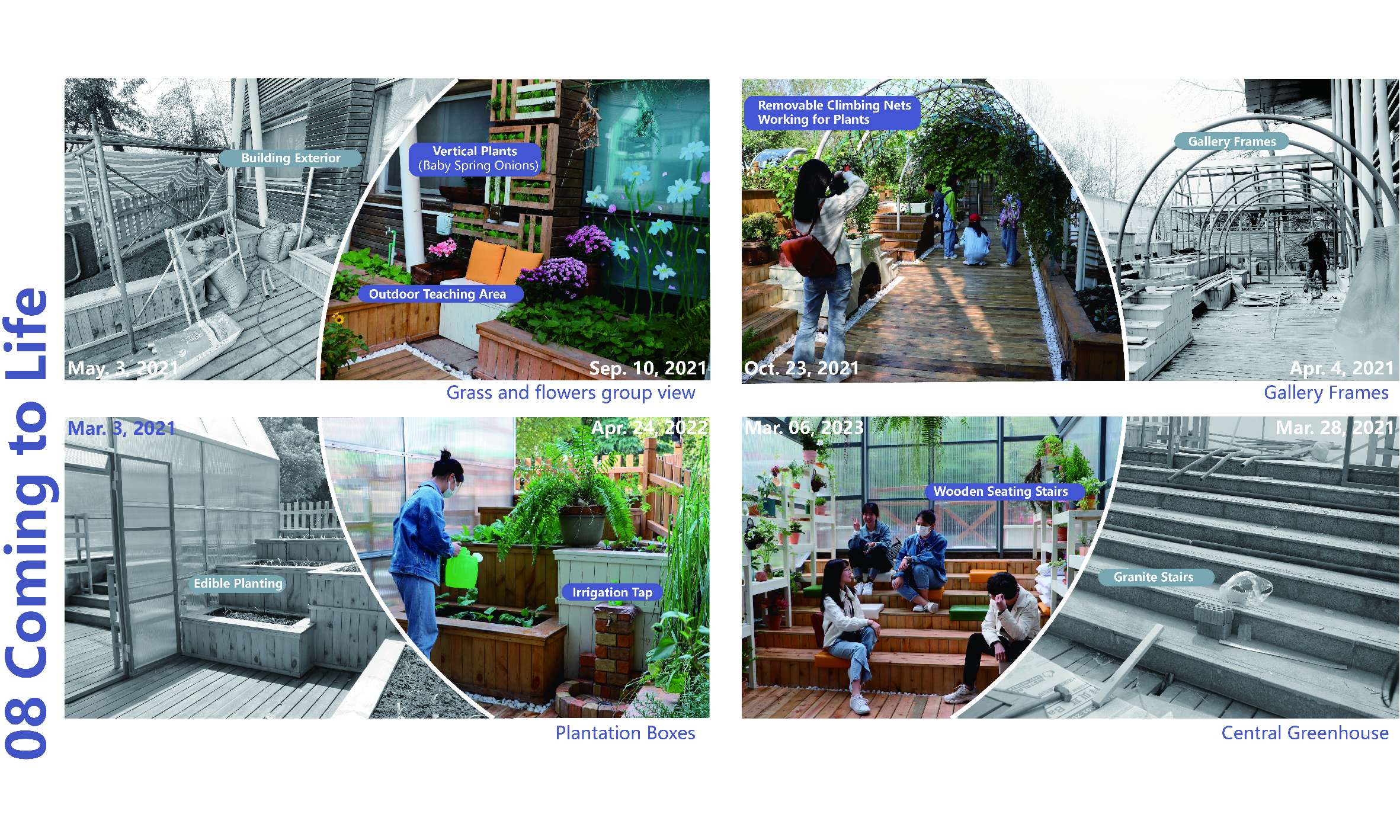
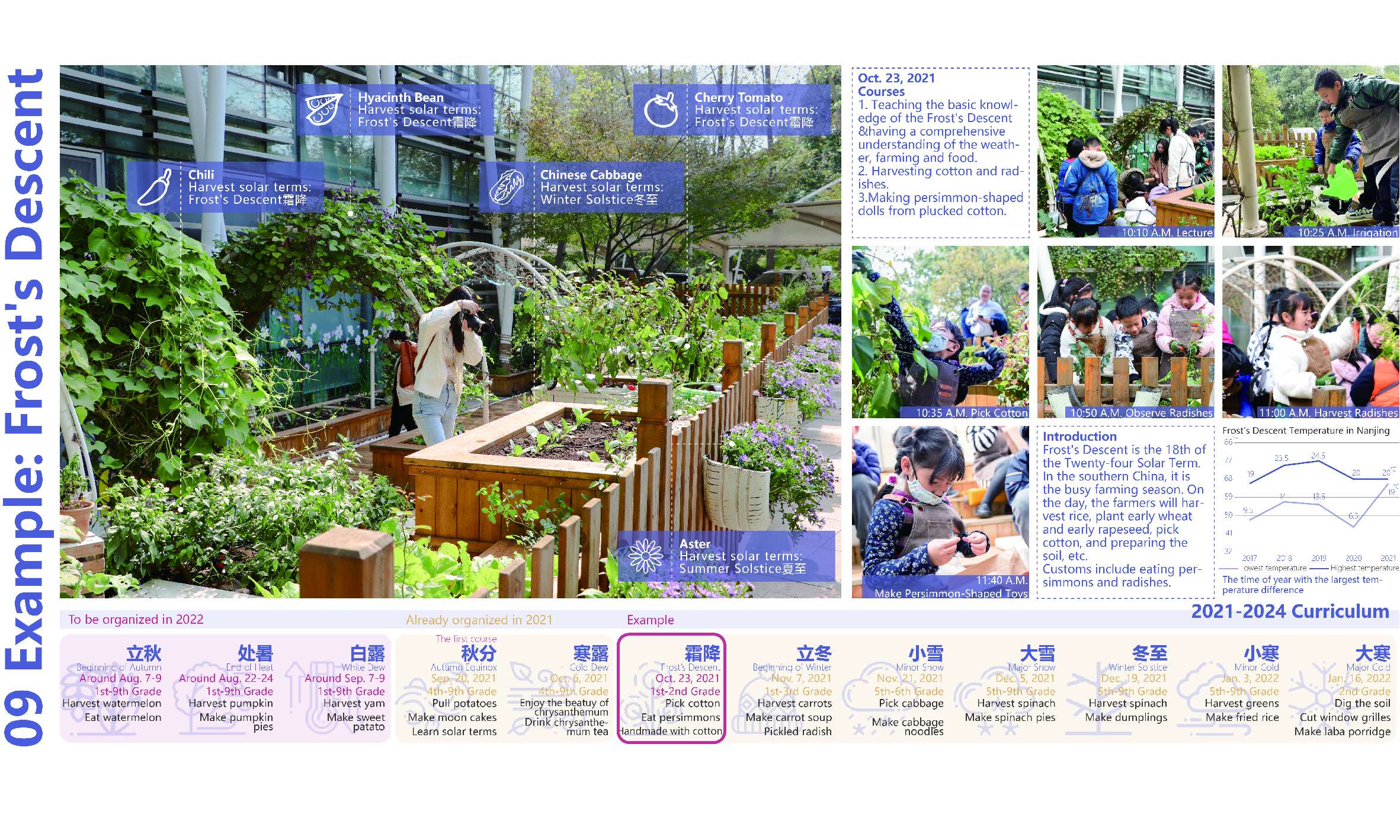
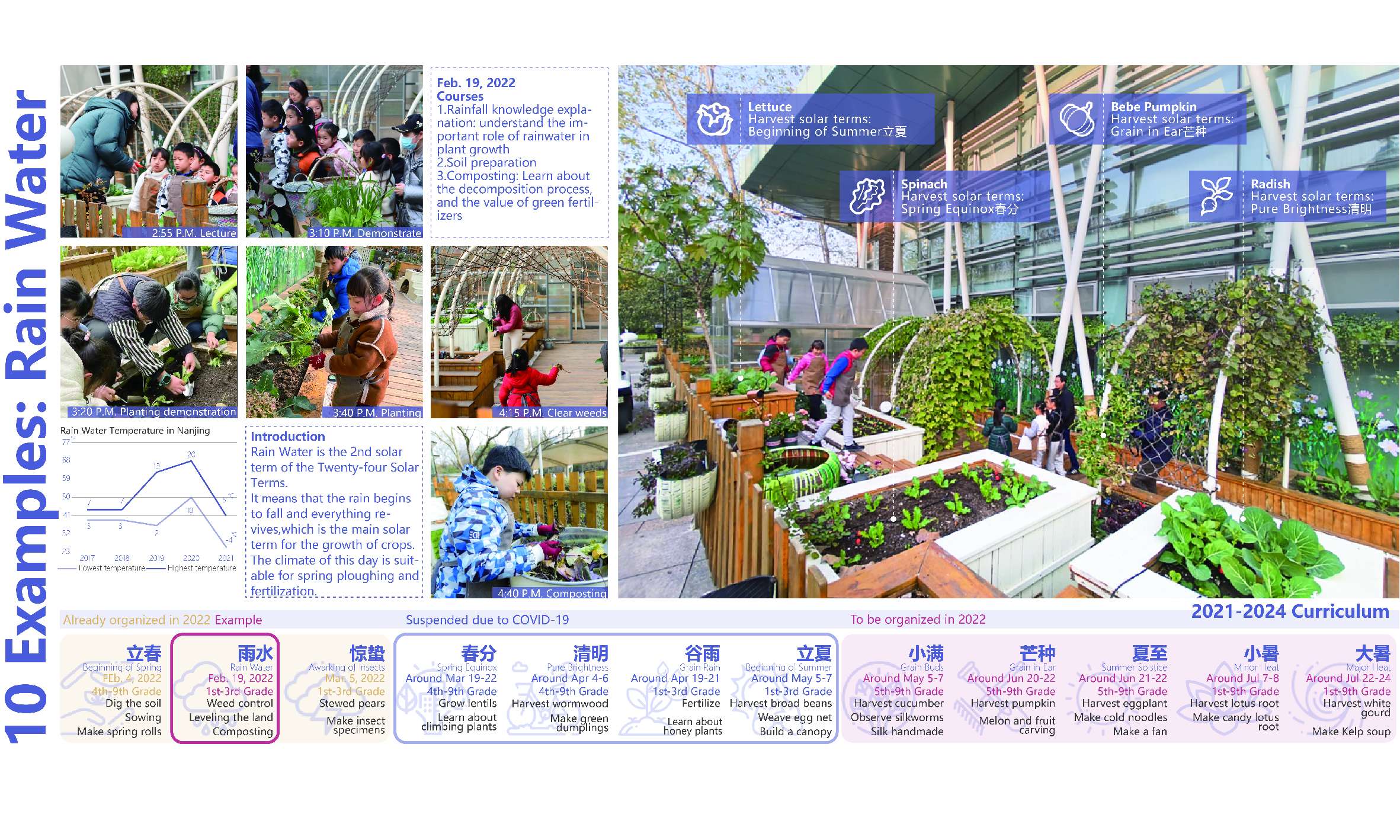
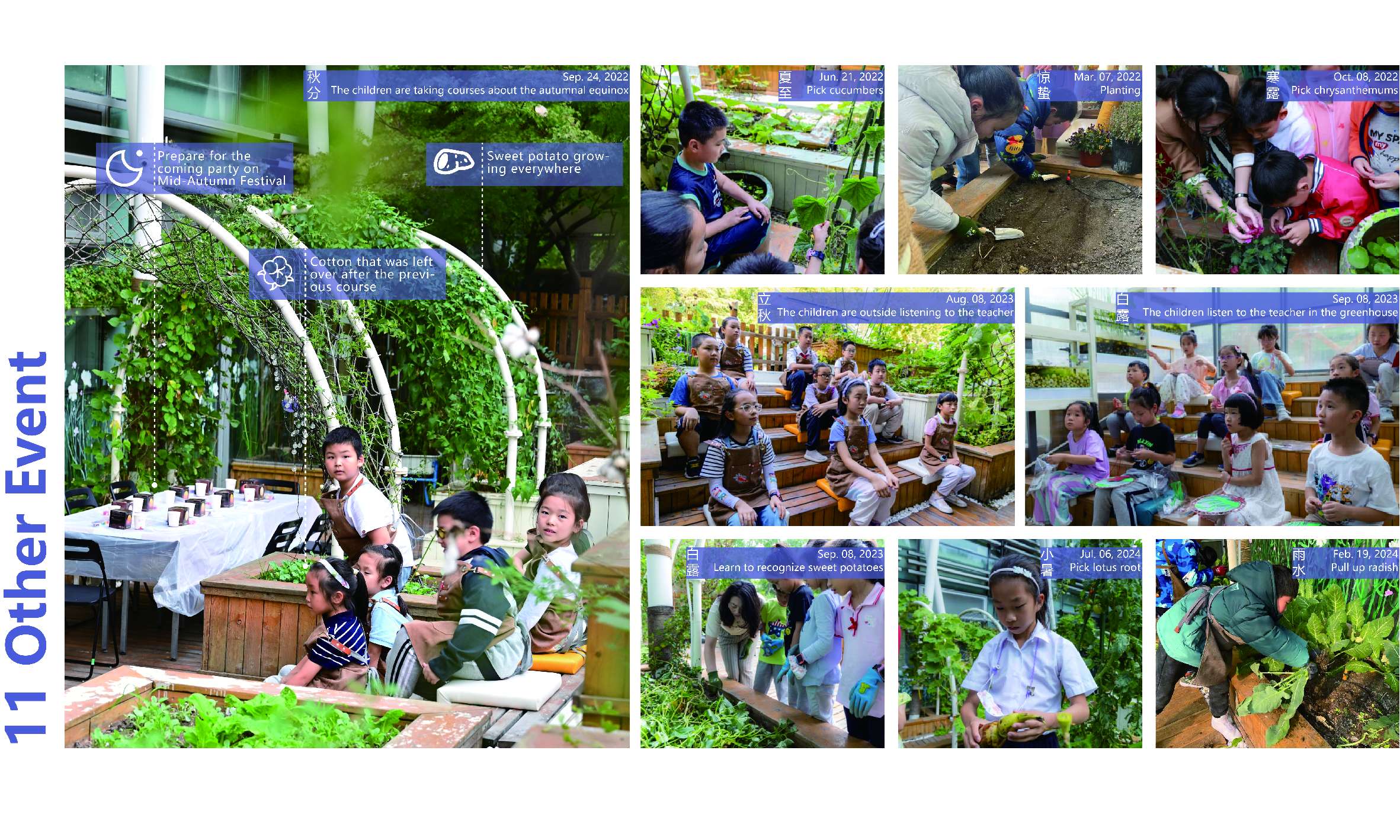
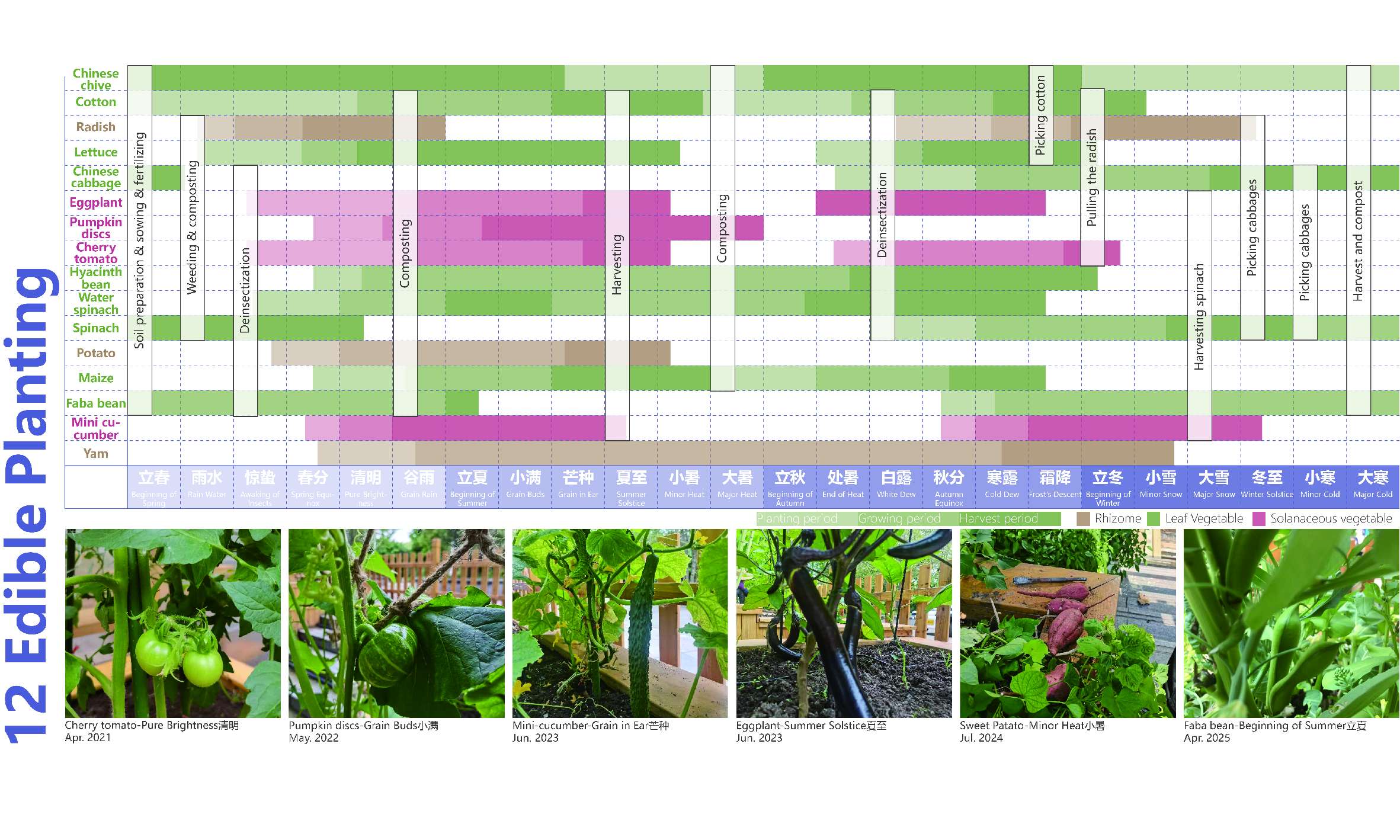
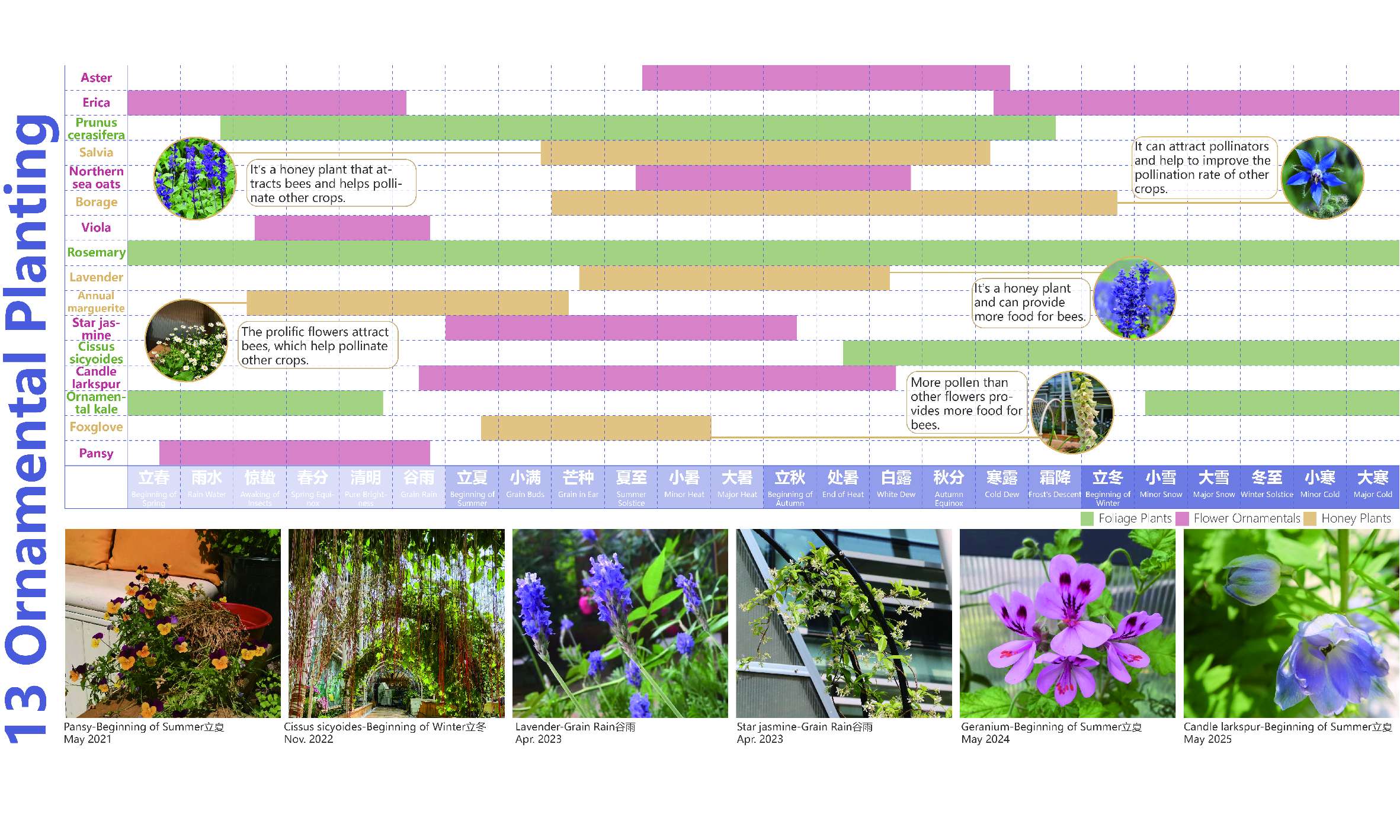
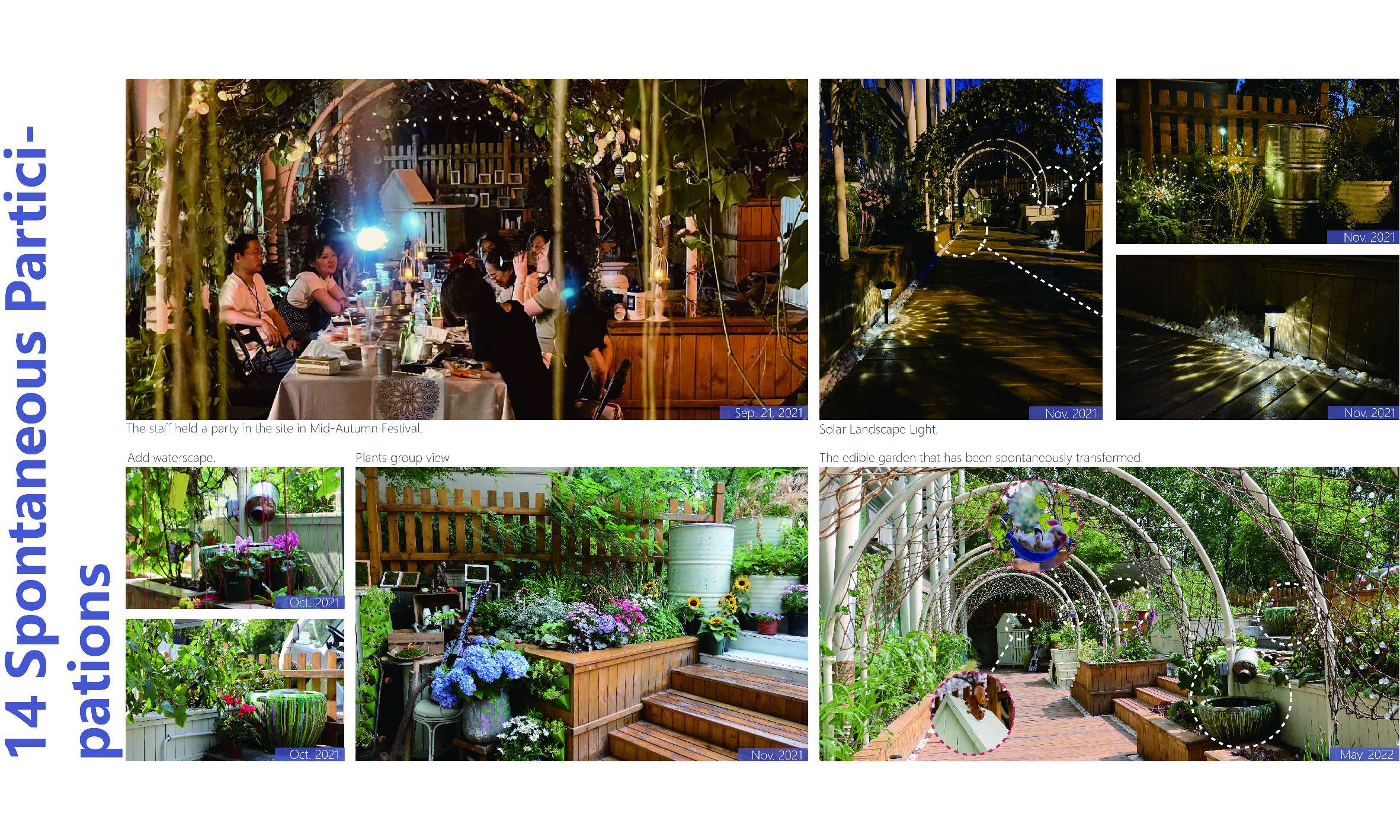
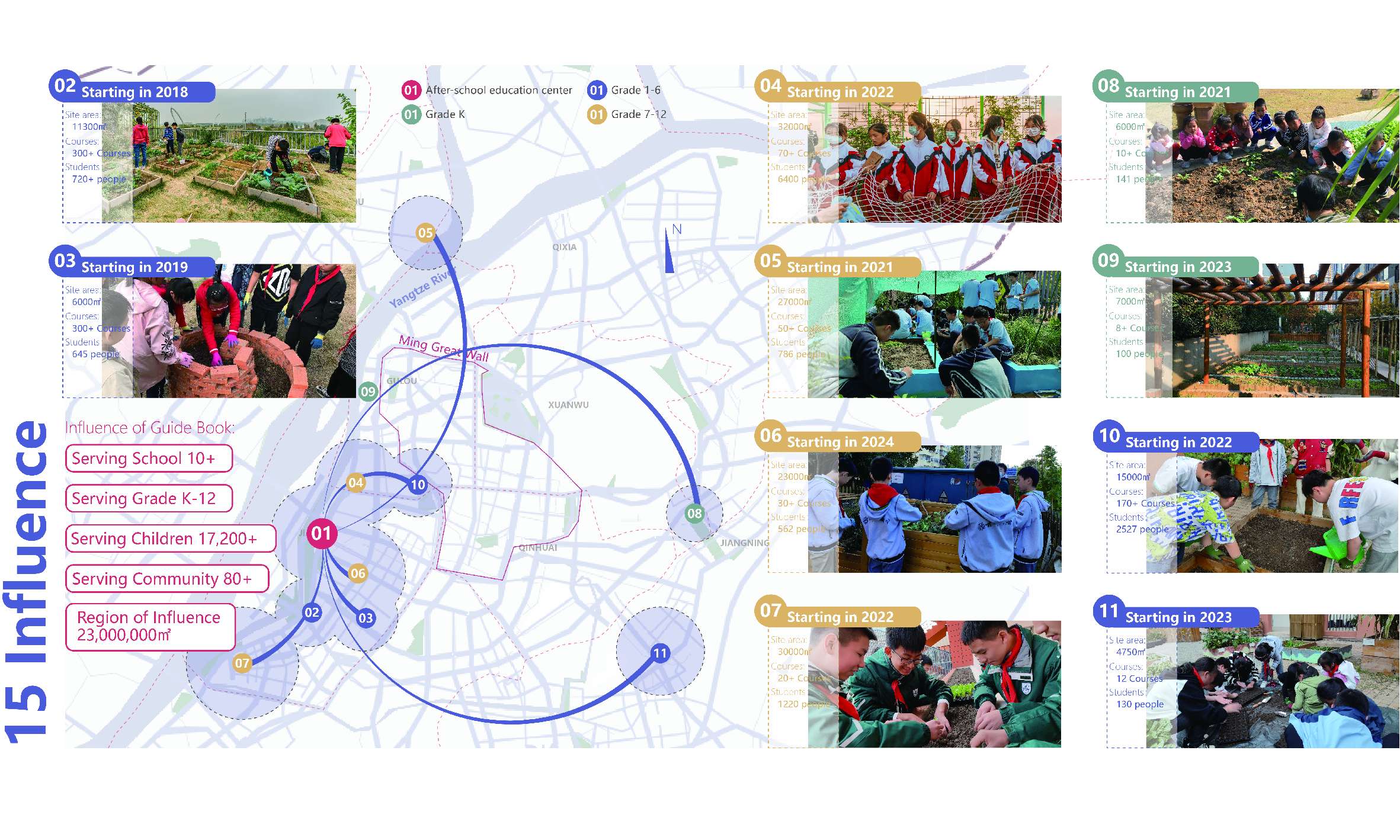
Heritage Harvest Hub: Cultivating Food Wisdom with Families Through the Seasons
文化丰收园:亲子四季食育
Heritage Harvest Hub: Cultivating Food Wisdom with Families Through the Seasons
In traditional Chinese culture, cultivating and harvesting foods are important activities related to health, family, order, and rituals. This project is a low-cost renovation (less than 13,300€) of a community’s unused land(134㎡) in the core city area of Nanjing. Over 3 years, more than 300 families have enrolled in a year-round food education program. The site is constantly being optimized simultaneously regarding the needs of planting. Within 2 years, 10 similar projects have been launched in the surrounding neighborhoods, based on the previously developed guide book which includes food education-based sites and course design. China's contemporary cities are highly complex and uncertain, "Food ideal" is still able to inspire change.
As social roles become increasingly differentiated in Chinese society, traditional family connections and neighborhood relationships are deteriorating, hence reshaping communities and public spaces has become an important part of China's contemporary urban development strategy. As one of the most important cities in China, Nanjing is also undergoing rapid development, shrinking public space and mixed residences in central cities have eroded neighborhood relationships. Especially for K-12 students in Nanjing, the space for activities per capita is extremely low, and academic pressure stresses the type and time of activity, preventing children from getting in touch with nature, as there are no nature courses or activity areas in the community or school. The "Food Ideal" garden project aims to provide a brand-new, reproducible design strategy and curriculum guide to revitalize public space in the city, a food culture approach to reshape idle public space as a means of improving community relations and combining ideal family lifestyles with urban renewal.
The "Food Ideal" project has the advantages of low cost, adaptability to the site, and high community acceptance. Throughout the continuous operation of the series of projects, community members and professionals actively participate, not only in the planting courses but also in the renewal and design of garden facilities. Participatory design and food growing sessions improved neighborhood relationships, and traditional farming culture is also embodied in contemporary urban growing spaces through regular practices taught to youth by the project team.
The "Food Ideal" garden is divided into 2 space types: indoor and outdoor. The simple greenhouse with a direct connection to the interior is a low-cost design including no heating or cooling equipment, and the original stair steps are converted into benches and platforms. Flowers and seedlings are placed inside the greenhouse. There are climbing frames made of galvanized steel pipes on the south side, connected by hemp rope climbing nets, and different climbing plants are planted in different seasons. On both sides planting boxes of different heights are placed. Over 60 types of vegetables and fruits are planted annually according to the planting plan, corresponding to 24 planting solar terms (the traditional crop planting calendar in the Yangtze River Basin of China, holidays such as the Spring Festival are all derived from it). Solar-term-based courses are offered every two weeks, 2-3 hours each time, and usually involve planting, harvesting, and sharing food cooking. Courses will be announced online two weeks in advance, families will need to make an appointment in advance, the course is free, and by May 2025, over 1000 participants have been enrolled.
Using the guidebook, the community can create flexible, low-cost, and adaptable spaces of various scales to match differentiated food-related activities. This design creates a "food ideal" garden capable of providing seasonal fresh food to the community and a design laboratory for the young to learn about healthy food and traditional farming culture. Garden course activities are still ongoing at the time of submission, as the guidebook is being updated.
